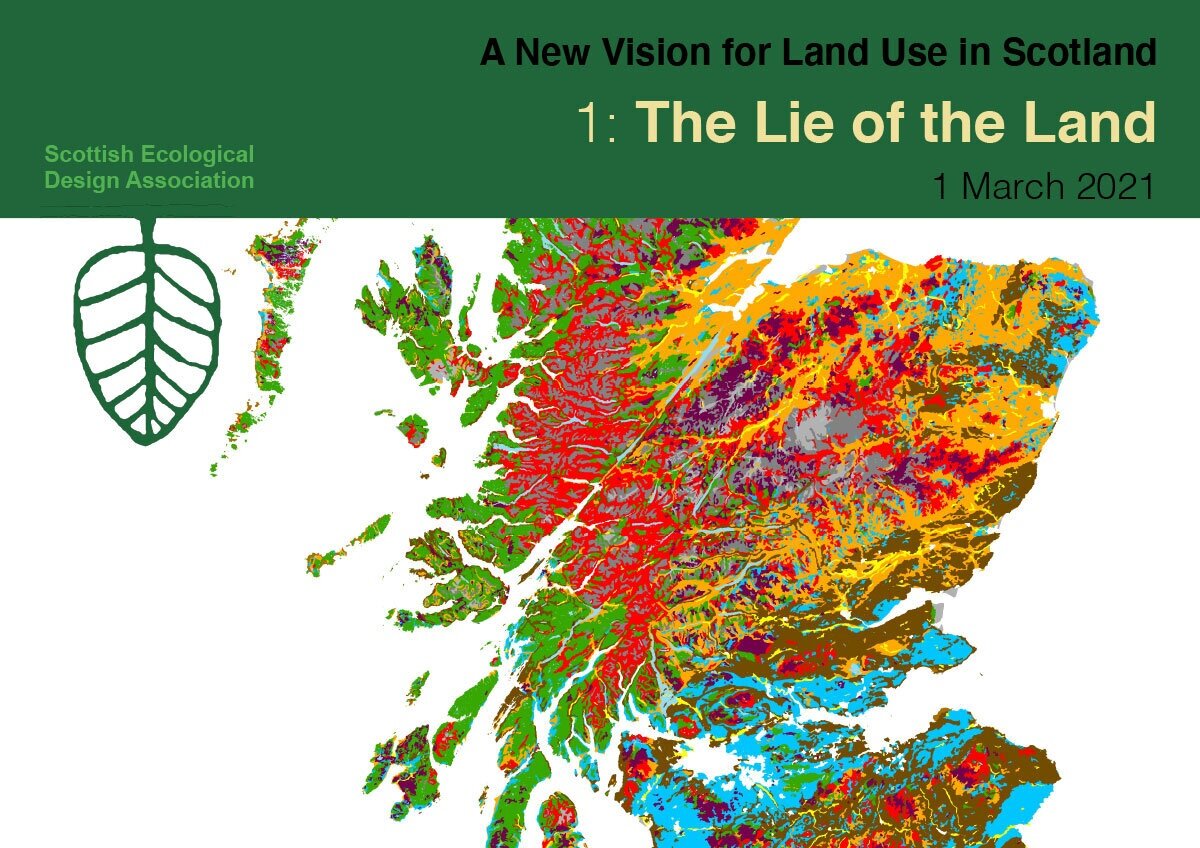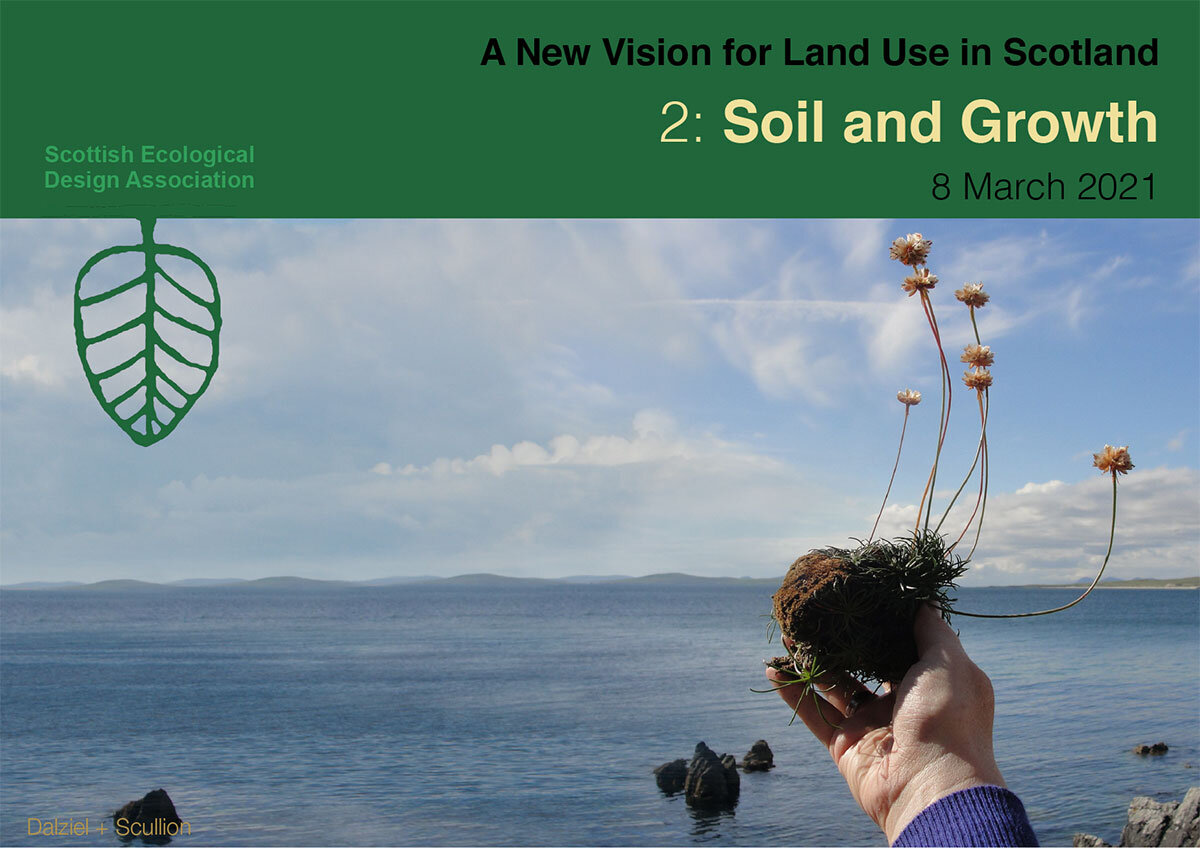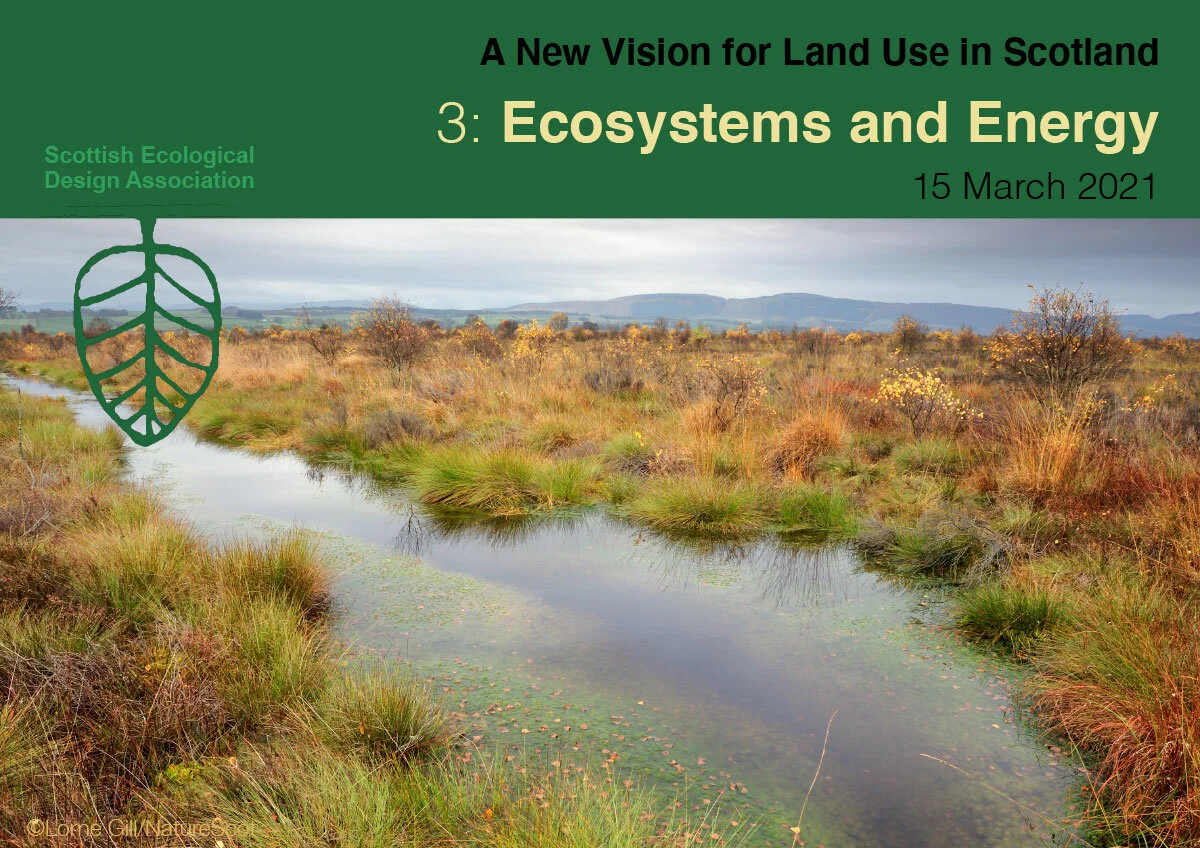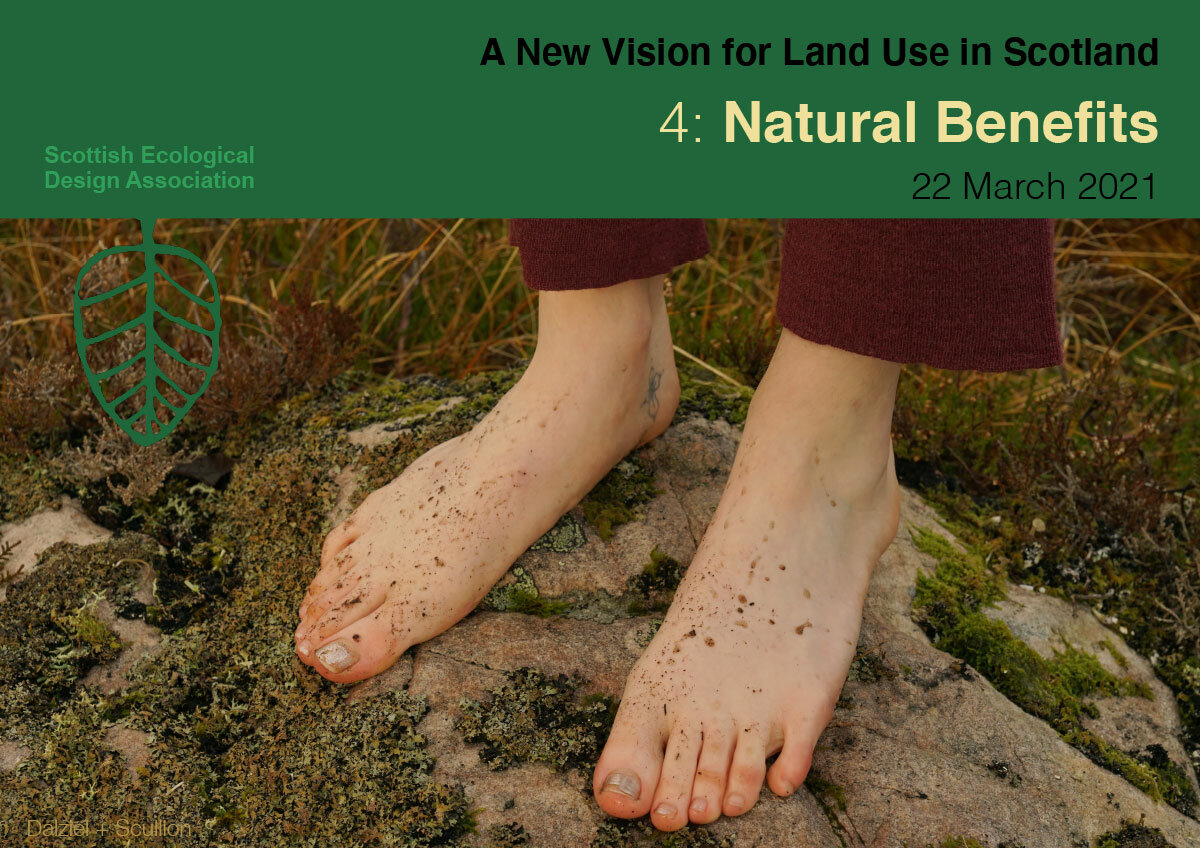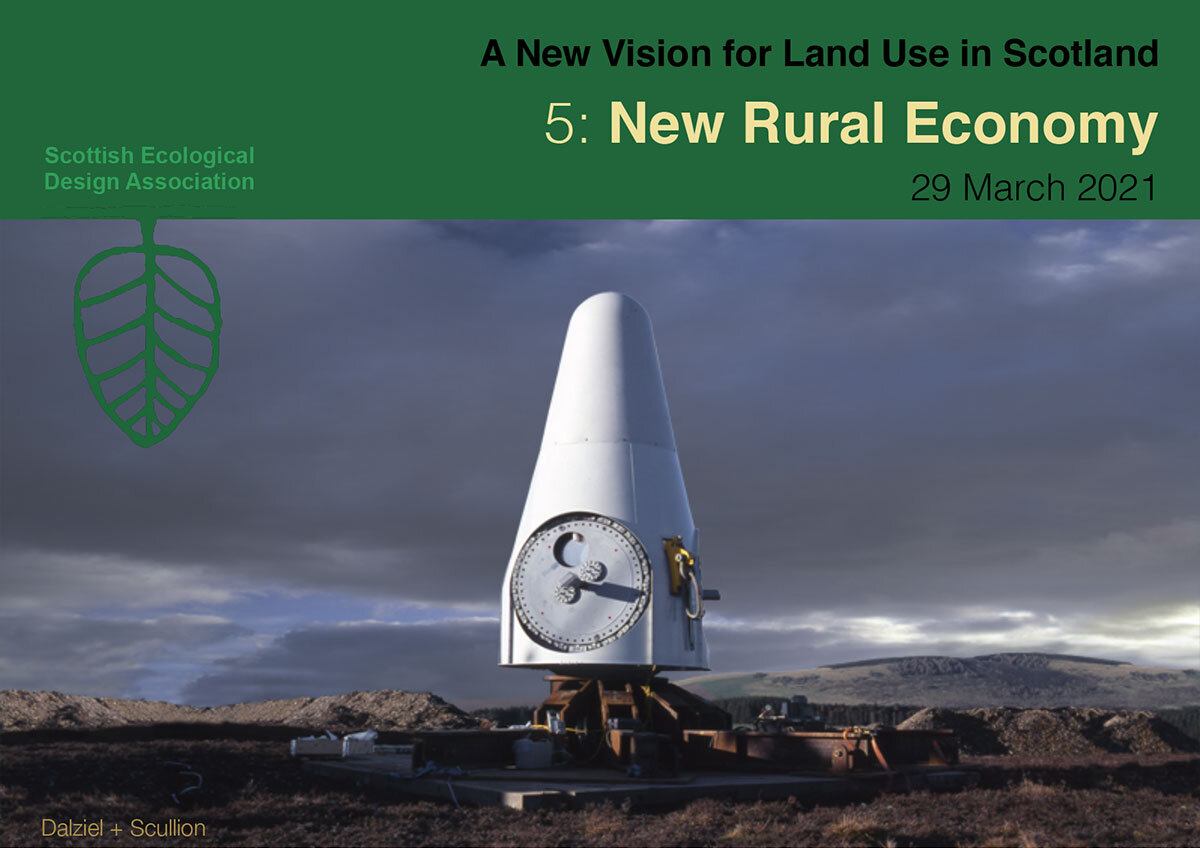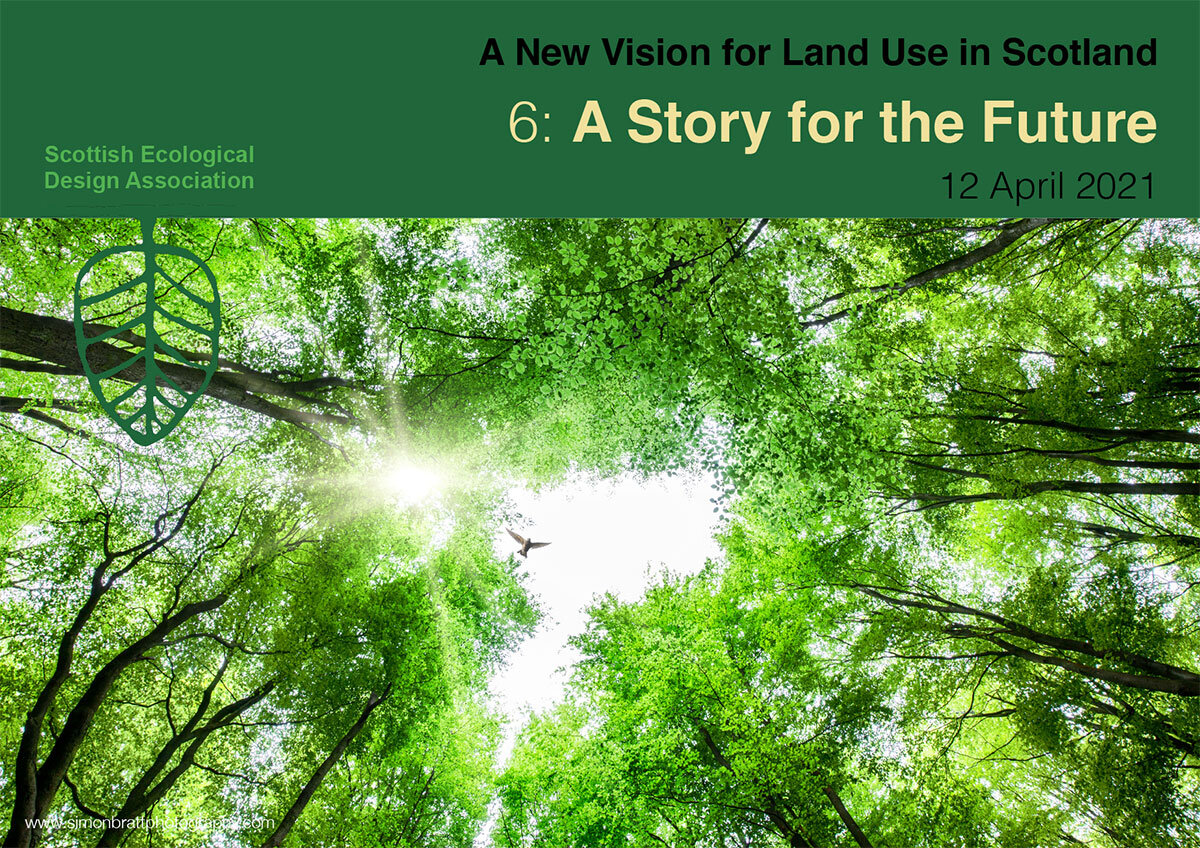Land Conversations / New Rural Economy
Changing economic patterns: reimagining where we live and worK
The countryside sustains towns and cities through providing clean water, clear air, food and offering a place for physical and mental wellbeing. But what sustains the countryside? Its value to Scotland needs to be appreciated and managed. To do that effectively could mean reversing the long-term decline in rural population. Interventions are needed from local communities, and local and central government to boost the economy in rural Scotland and to encourage young people to remain or return. What new job opportunities and what infrastructure, including housing, might support such regeneration? Should there be large-scale intervention as was seen in the Land Settlement Act and who is best placed to organise it?
To continue the Conversation, please add your thoughts on the subjects discussed and the four proposals we have posted around them, on our Padlet at:
https://padlet.com/ScotEcoDesign/LandConv5
Speakers
chair
Deborah Roberts
Deputy Chief Executive and Director of Science, The James Hutton Institute
As well as her role at The James Hutton Institute, Deb holds an Honorary Chair in the Business School, University of Aberdeen. Her research experience spans agricultural economics and regional science and she has undertaken work for a wide range of funding bodies including the European Commission, DEFRA, ESRC, the Scottish Government, Forestry Commission, Scottish Natural Heritage and the Joseph Rowntree Foundation. Deb has research interests in a number of inter-related areas. In relation to rural and regional development she focuses on understanding how and why rural economies are unique, the key drivers for change, and reasons for regional disparities. In relation to policy, she has focussed on modelling the economy-wide impacts of changes in farm, forestry and structural policies using social accounting methods and general equilibrium models. She has also carried research at the micro-level looking at farm household behaviour and the dynamics of fuel poverty.
speaker
Magnus Davidson
Environmental Research Institute, University of the Highlands and Islands
Magnus is a research associate with the University of the Highlands and Island’s Environmental Research Institute, based in Thurso, Scotland’s most northerly mainland town. A native of the Highlands his work focusses on setting out a new vision for 21st rural Scotland which works for both people and nature and reverses centuries of depopulation and ecological degradation. Adopting an eclectic research portfolio across energy, climate, land use, development, and conservation he pulls together a range of often conflicting views into a holistic vision for the Highlands and Islands which is rooted in the unique social and cultural traditions of the region. As a proponent of community lead, bottom up approaches, he has also been involved in work with establishing a youth climate change charity in Scotland as well as sitting on the boards of local organisations involved in community development and heritage. He also teaches across the university curriculum on sustainability issues
Panel
Neil Sutherland
Architect / Director, Makar Ltd.
Neil is an award winning, ecologically driven architect who runs his own construction company, MAKAR Ltd., South of Inverness. MAKAR is a pioneering company that designs and builds ecological homes, offices and community buildings using off-site construction. Neil is passionate about building healthy, environmentally friendly, low energy buildings using locally grown timber. Neil has experience in timber and land management and teaches at the Scott Sutherland School of Architecture, Aberdeen.
Dennis Overton OBE
Sea Farmer & Chair, Scotland Food & Drink
Dennis is a former chair of the board of the Soil Association, a non-executive SAC (SRUC) board member and chairman of the board of Scotland Food & Drink. After graduating in agricultural economics, Dennis has followed an entrepreneurial career path establishing and growing several food and farming businesses. He co-founded the Ross-shire-based sustainable seafood business Aquascot and currently chairs the Trust which owns the business on behalf of its employees. He brought the world’s first organic salmon to market in 1999..
Professor Ronald MacDonald OBE
Research Professor of Macroeconomics and International Finance, Glasgow University
Ronald is currently Research Professor in Macroeconomics and International Finance in the Adam Smith Business School. Prior to this he held the Adam Smith Chair of Political Economy, and the Bonar Macfie Chair of Economics. Ronald has acted as an advisor to numerous governments and public agencies. He has served on the Scottish Economic Society, and was one of the founding directors of the Scottish Institute for Research in Economics. More recently Ronald has written about the opportunities, radical reforms and potential policy actions that governments can take post-pandemic to balance the health and wellbeing of their populations with maintaining economic efficiency.
Guy Watt
Forest industry economist
Guy is managing director of John Clegg Consulting Ltd. and co-chair of the Scottish Forest and Timber Technologies Industry Leadership Group. Guy is a graduate of forestry and forest economics. He is a Fellow of the Institute of Chartered Foresters and a Member of the Institute of Economic Development. He worked in the South Pacific for two years followed by four years at the Forest Research Institute in New Zealand. Guy has undertaken a wide variety of consultancy assignments connected with forestry and wood processing in the UK over the last 20 years, firstly with EFG, followed by 13 years with John Clegg & Co. before starting John Clegg Consulting Ltd.
Duncan Bryden
Bryden Associates
Duncan has 30 years of experience as a rural development specialist in Scotland. He has a particular interest in strategic policy and planning in rural and mountain areas. He believes in a sustainable economic approach which integrates community needs and aspirations with a high quality environment. His experience is in strategic planning and practical site management, policy development and community facilitation, with particular specialisms in land and environmental management, ecotourism, community consultation, visitor management, access and heritage interpretation. He has delivered over 100 reports for the public, private and third sectors and supported many community buyouts. He is an associate of the University of the Highlands and Island Economic Intelligence Unit. Duncan has previously been Vice Chairman, National Parks UK, chairman, Cairngorms National Park Authority and director of Scottish Wildlife Trust.
artistic contributions
Each of the six conversations will include four artistic contributions, from poets, musicians and video artists, bringing a cultural perspective to each event. Each of their pieces will be a different take on the changing rural landscape around them, the climate emergency and the unstable connections between the human and the natural worlds. Some will be provocative about the way forward, some reflective of the current situation, and others just a joyous celebration of nature.
The contributors tonight are:
Kirsty Law The Faithful Shepherdess
Sophie Cooke Bread
Jules Horne Remeandering
The Poozies Fresh Blood











